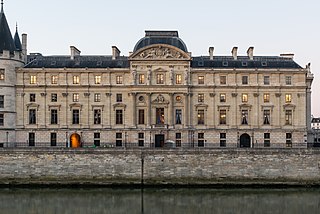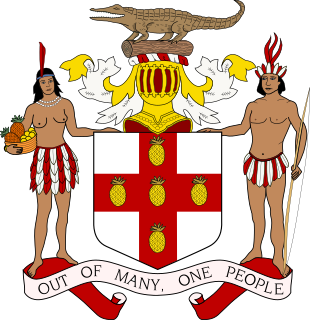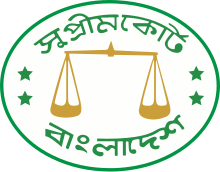
The Court of Cassation is one of the four courts of last resort in France. It has jurisdiction over all civil and criminal matters triable in the judicial system, and is the supreme court of appeal in these cases. It has jurisdiction to review the law, and to certify questions of law, to determine miscarriages of justice. The Court is located in the Palace of Justice in Paris.

The Appellate Divisions of the Supreme Court of the State of New York are the intermediate appellate courts in New York State. There are four Appellate Divisions, one in each of the state's four Judicial Departments.

The United States Court of Appeals for the Ninth Circuit is a federal court of appeals that has appellate jurisdiction over the U.S. district courts in the following federal judicial districts:

The Supreme Court is the final court of appeal in the United Kingdom for all civil cases, as well as for criminal cases originating in England, Wales and Northern Ireland. It also hears cases of the greatest public or constitutional importance affecting the whole population.

The Supreme Court of Tasmania is the highest State court in the Australian State of Tasmania. In the Australian court hierarchy, the Supreme Court of Tasmania is in the middle level, with both an appellate jurisdiction over lower courts, and decisions made by Court to be heard on appeal by the High Court of Australia.

The Court of Appeal of Singapore is the nation's highest court and court of final appeal. It is the upper division of the Supreme Court of Singapore, the lower being the High Court. The Court of Appeal consists of the chief justice, who is the president of the Court, and the Judges of Appeal. The chief justice may ask judges of the High Court to sit as members of the Court of Appeal to hear particular cases. The seat of the Court of Appeal is the Supreme Court Building.

The Supreme Court of Bangladesh is the highest court of law in Bangladesh. It is composed of the High Court Division and the Appellate Division, and was created by Part VI Chapter I of the Constitution of Bangladesh adopted in 1972. This is also the office of the Chief Justice, Appellate Division Justices, and High Court Division Justices of Bangladesh. As of February 2022, there are 7 Justices in Appellate Division and 86 in High Court Division.

A supreme court is the highest court within the hierarchy of courts in many legal jurisdictions. Other descriptions for such courts include court of last resort, apex court, and highcourt of appeal. Broadly speaking, the decisions of a supreme court are not subject to further review by any other court. Supreme courts typically function primarily as appellate courts, hearing appeals from decisions of lower trial courts, or from intermediate-level appellate courts.

The High Court Division popularly identified as 'High Court' is one of the two wings of the Supreme Court of Bangladesh, the other wing being the Appellate Division. It consists of the Chief Justice of Bangladesh and the Judges of the High Court Division.

The Court of Appeals is an appellate collegiate court in the Philippines. The Court of Appeals consists of one presiding justice and sixty-eight associate justices. Pursuant to the Constitution, the Court of Appeals "reviews not only the decisions and orders of the Regional Trial Courts nationwide but also those of the Court of Tax Appeals, as well as the awards, judgments, final orders or resolutions of, or authorized by twenty-one quasi-judicial agencies exercising quasi-judicial functions mentioned in Rule 43 of the 1997 Rules of Civil Procedure, plus the National Amnesty Commission and the Office of the Ombudsman. Under Republic Act No. 9282, which elevated the Court of Tax Appeals to the same level of the Court of Appeals, en banc decisions of the Court of Tax Appeals are update subject to review by the Supreme Court instead of the Court of Appeals. Added to the formidable list are the decisions and resolutions of the National Labor Relations Commission which are now initially reviewable by the Court of Appeals, instead of a direct recourse to the Supreme Court, via petition for certiorari under Rule 65 ".

The judiciary of Jamaica is based on the judiciary of the United Kingdom. The courts are organized at four levels, with additional provision for appeal to the Judicial Committee of the Privy Council in London. The Court of Appeal is the highest appellate court. The Supreme Court has unlimited jurisdiction in all cases, and sits as the Circuit Court to try criminal cases. The Parish Court in each parish hears both criminal and civil cases, excluding grave offences. The Petty Sessions are held under Justices of the Peace, with power to hear minor crimes.

The chief justice of Bangladesh is the chief amongst the judges of the Supreme Court of Bangladesh, and also head of the whole judicial establishments, including subordinate courts. The chief justice is appointed by the president of Bangladesh. The chief justice sits in the Appellate Division of the Supreme Court with other judges to hear and decide cases, presides over meetings of the full Supreme Court to transact business relating to administration of the court, and supervises the discipline of the judges and magistrates of the subordinate courts. Most rules for regulating the practice and procedure of both the Appellate and High Court Divisions of the Supreme Court including those specified in certain legislative acts, such as the Companies Act 1994 and the Banking Companies Act 1991, are also duly scrutinized and approved in full court meetings presided over by the chief justice. He also distributes judicial business of the High Court Division by constituting different benches to exercise its original, appellate and revisable jurisdictions.
Md. Muzammel Hossain is a Bangladeshi jurist who served as the 20th Chief Justice of Bangladesh.

Surendra Kumar Sinha is a Bangladeshi lawyer and jurist who served as the 21st Chief Justice of Bangladesh. He resigned from the position in November 2017 amid the 16th amendment verdict controversy.
The Judiciary of Bangladesh or Judicial system of Bangladesh is based on the Constitution and the laws are enacted by the legislature and interpreted by the higher courts. Bangladesh Supreme Court is the highest court of Bangladesh. The jurisdiction of the Supreme Court of Bangladesh has been described in Article 94(1) of the Constitution of Bangladesh. It consists of two divisions, the High Court Division and the Appellate Division. These two divisions of the Supreme Court have separate jurisdictions.
Bangladesh Italian Marble Works Ltd. v. Government of Bangladesh is a case of the Appellate Division of the Supreme Court of Bangladesh. In a significant verdict in 2010, the court overturned the fifth amendment to the Constitution of Bangladesh made in 1979; and strengthened the secular democratic character of the Bangladeshi republic.
Nazmun Ara Sultana first woman in Bangladesh to serve as head of an Appellate Division bench in Supreme Court. Supreme Court, the apex court that gives a final verdict in the country's judicial system. Nazmun Ara Sultana took oath as a first female justice of Appellate Division on February 23 in 2011. She goes into retirement on July 7, 2017.
Hasan Foez Siddique is a Bangladeshi lawyer and jurist who is the 23rd and current Chief Justice of the Supreme Court of Bangladesh. He is scheduled to retire on 25 September 2023.
Justice Md. Ruhul Quddus is a Bangladeshi justice of the High Court Division of the Supreme Court of Bangladesh.
Borhanuddin is a judge on the Appellate Division of the Bangladesh Supreme Court.















